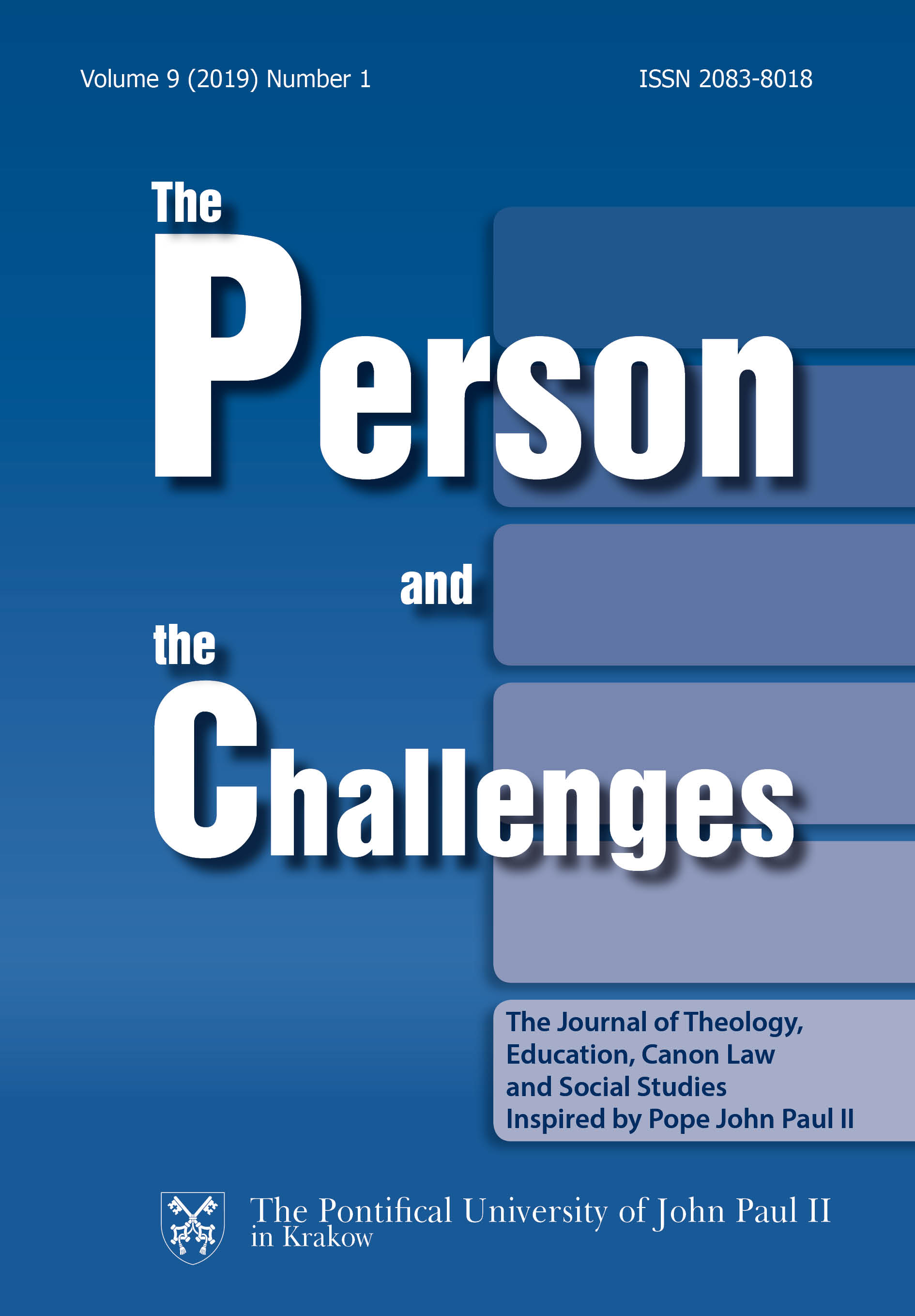A Great Lesson of Spirituality and Humanism. Pope John Paul II at the Headquarters of UNESCO in Paris (2 June 1980)
DOI:
https://doi.org/10.15633/pch.3360Słowa kluczowe:
UNESCO, culture, nation, person, ethos, love, hopeAbstrakt
The speech given by St. Pope John Paul II at the UNESCO headquarters in Paris on June 2, 1980 has a special place among his numerous addresses concerning culture. Referring to the cultural changes which took place in the last three centuries the pope stood up for culture, emphasising that, in an individual dimension, culture represents the constitutive element of life of every man and, correspondingly, in a social dimension, it provides a support for self-determination and for the freedom of nations. Formulating such a message, the pope referred to Polish experiences, in order to highlight the significance and the primacy of the person and to point out the subjective meaning of a nation and the ethical dimension of culture. In the papal message one can also find a call for cultural opposition against contemporary subjectivism and other tendencies heading towards the disinheritance of man and to the shutting of the door of the universal horizon of hope and love, which is based on manifold human experiences from the past.
Bibliografia
Autor de „Personne et acte” de Karol cardinal Wojtyla. Articles et conférences sur une rencontre du thomisme avec la phénoménologie, ed. G. Kalinowski, Aix-en-Provence 1987.
Buttiglione R., Etyka wobec historii, Lublin 1994.
Cottier J., Tommaso d’Aquino, teologo e filosofo, alla luce di «Fides et ratio», in: Fede e ragione. Opposizione, composizione?, a cura di M. Mantovani, S. Thuruthiyil, M. Toso, Roma 1999, pp. 187-194.
Giovanni Paolo II, L’allocuzione all’Organizzazione delle Nazioni Unite per l’Educazione, la Scienza e la Cultura (2 giugno 1980), in: Insegnamenti di Giovanni Paolo II, vol. III, 1, Città del Vaticano 1980, pp. 1636-1655.
Giovanni Paolo II, Il messaggio consegnato nella Sede dell’Organizzazione delle Nazioni Unite, per la celebrazione del 50o di fondazione (New York, 2 giugno 1980), in: Insegnamenti di Giovanni Paolo II, vol. XVIII, 2, Città del Vaticano 1998, p. 730-744.
In der Fülle des Glaubens. Hans Urs von Balthasar-Lesebuch, hrsg. M. Kehl, W. Löser, Basel – Freiburg – Wien 1980.
John Paul II, Enc. Centesimus annus (May 1, 1991).
Koneczny F., Obronić cywilizację łacińską!, Lublin 1992.
Królikowski J., Natura czy kultura, czyli o co toczy się walka w dyskusji o gender?, Tarnów 2014.
Królikowski J., „Stała pokusa wiary”. Współczesne bałwochwalstwo i jego geneza, „Studia Teologii Dogmatycznej” 3 (2017), p. 89-105.
Marcel G., Être et avoir, Paris 1935.
Marion J.-L., Étant donné. Essai d’une phénomenologie de la donation, Paris 19982.
Paul VI, Enc. Populorum progressio (26 March 1967).
Raimond J.-B., Jean-Paaul II. Un Pape au coeur de l’Histoire, Paris 1999 (Polish translation: Jan Paweł II. Papież w samym sercu Historii. Apostoł prawdy i wolności jako dyplomata i polityk, transl. T. Olszewski, Gniezno 2000.
Kalinowski G., L’impossible métaphysique, Paris 1981.
Lubac H. de, Memoire sur l’occasion de mes écrits, Namur 19922.
Renan E., Qu’est-ce qu’une nation?, Paris 1882.
Thomas Aquinas, Summa theologiae.
Thomas Aquinas, Expositio libri Posteriorum Analiticorum.
Vicotorinus, Gaius Marius, In Epistulam Pauli ad Ephesios: PL 8.
Wojtyła K., Osoba i czyn oraz inne studia antropologiczne, Lublin 1994.
Pobrania
Opublikowane
Numer
Dział
Licencja
Prawa autorskie (c) 2019 Janusz Królikowski

Utwór dostępny jest na licencji Creative Commons Uznanie autorstwa 4.0 Międzynarodowe.
Autorzy publikujący w czasopiśmie udzielają jego wydawcy zgody o następującej treści:
- Autor zachowuje autorskie prawa majątkowe do utworu, a jednocześnie udziela wydawcy czasopisma zgody na jego pierwszą publikację w wersji drukowanej i wersji online na licencji Creative Commons Uznanie autorstwa 4.0 Międzynarodowe oraz zgody na wykonywanie opracowań, w tym przekładów.
- Autor ma możliwość udzielania zgody niewyłącznej na opublikowanie utworu w wersji, która ukazała się w czasopiśmie (np. zamieszczenia go w repozytorium instytucjonalnym lub opublikowania w książce), wraz z informacją o jego pierwszej publikacji w czasopiśmie.
- Autor może umieścić swój utwór online (np. w repozytorium instytucjonalnym lub na swojej stronie internetowej) jeszcze przed zgłoszeniem utworu do czasopisma.

